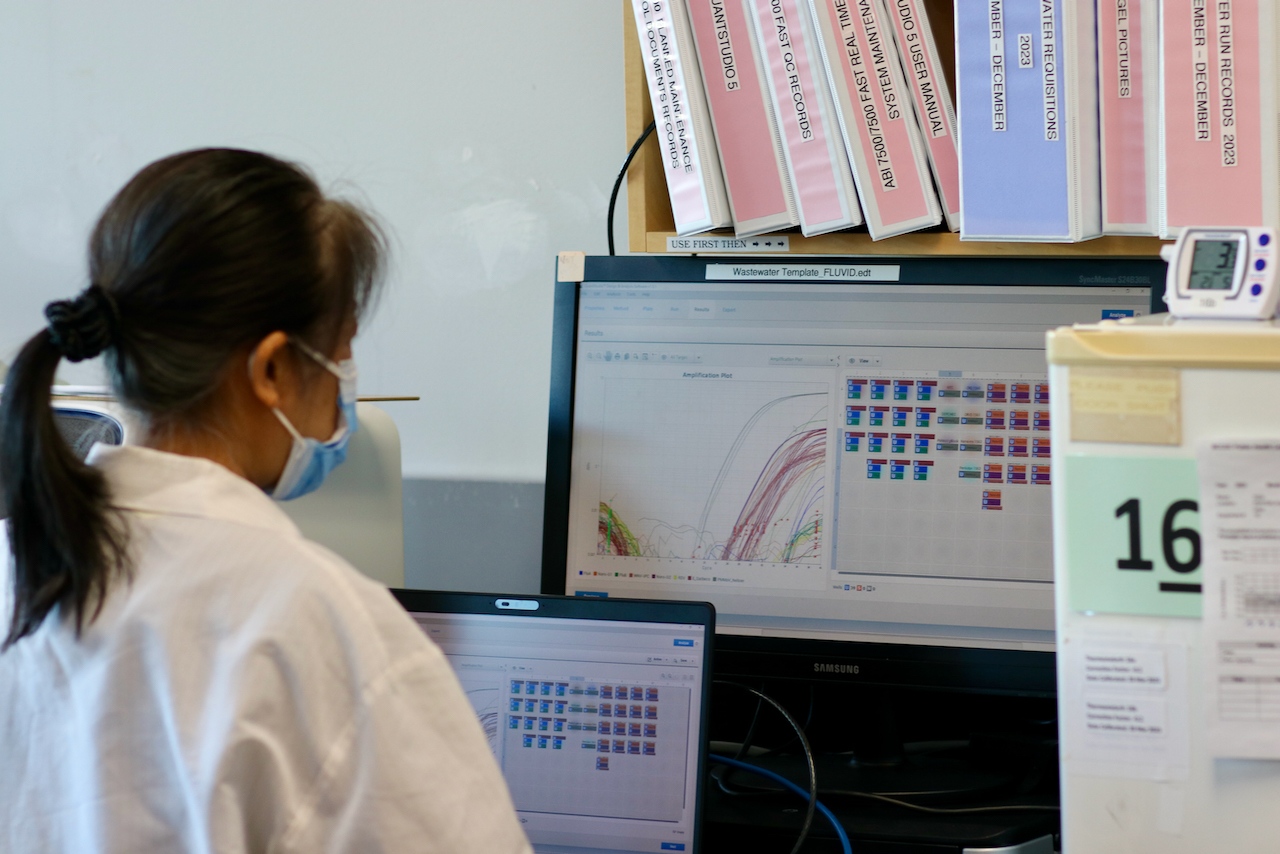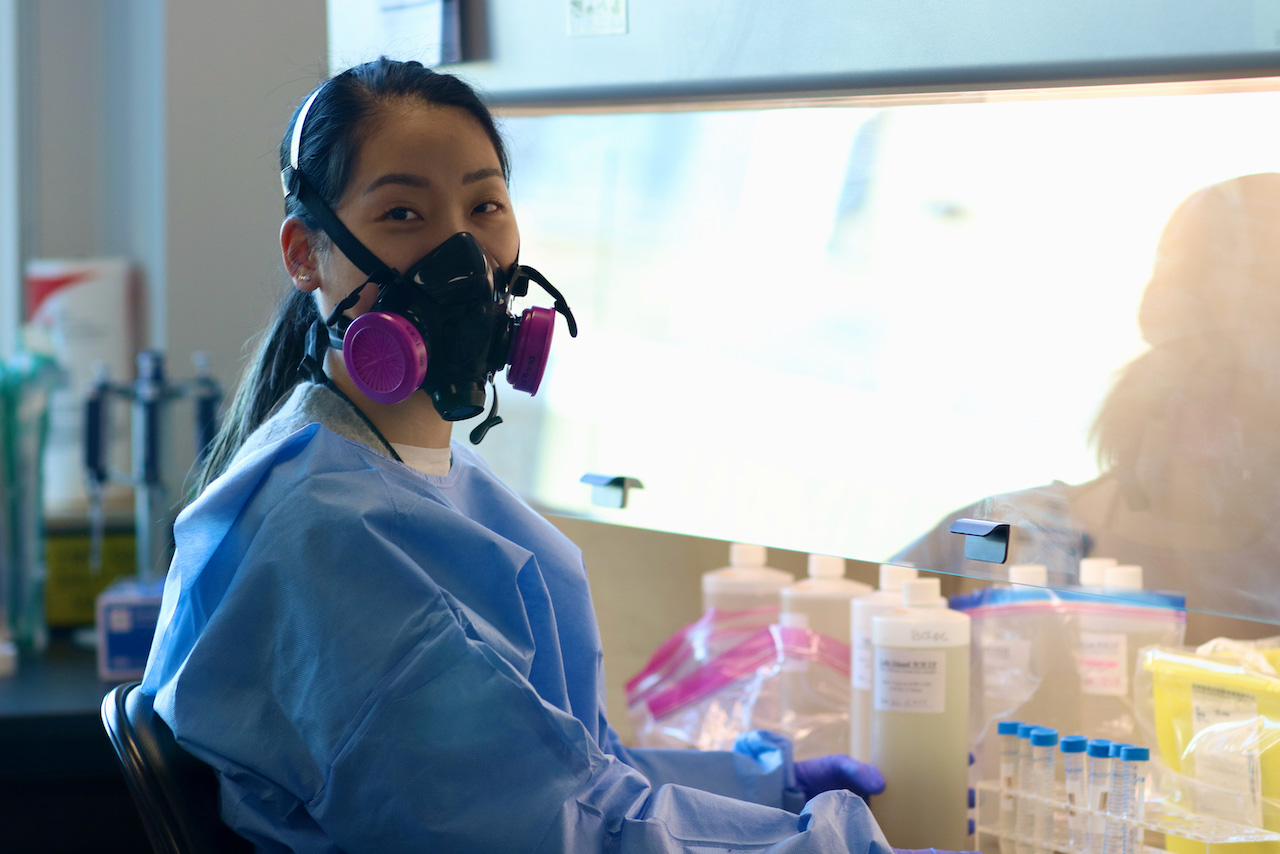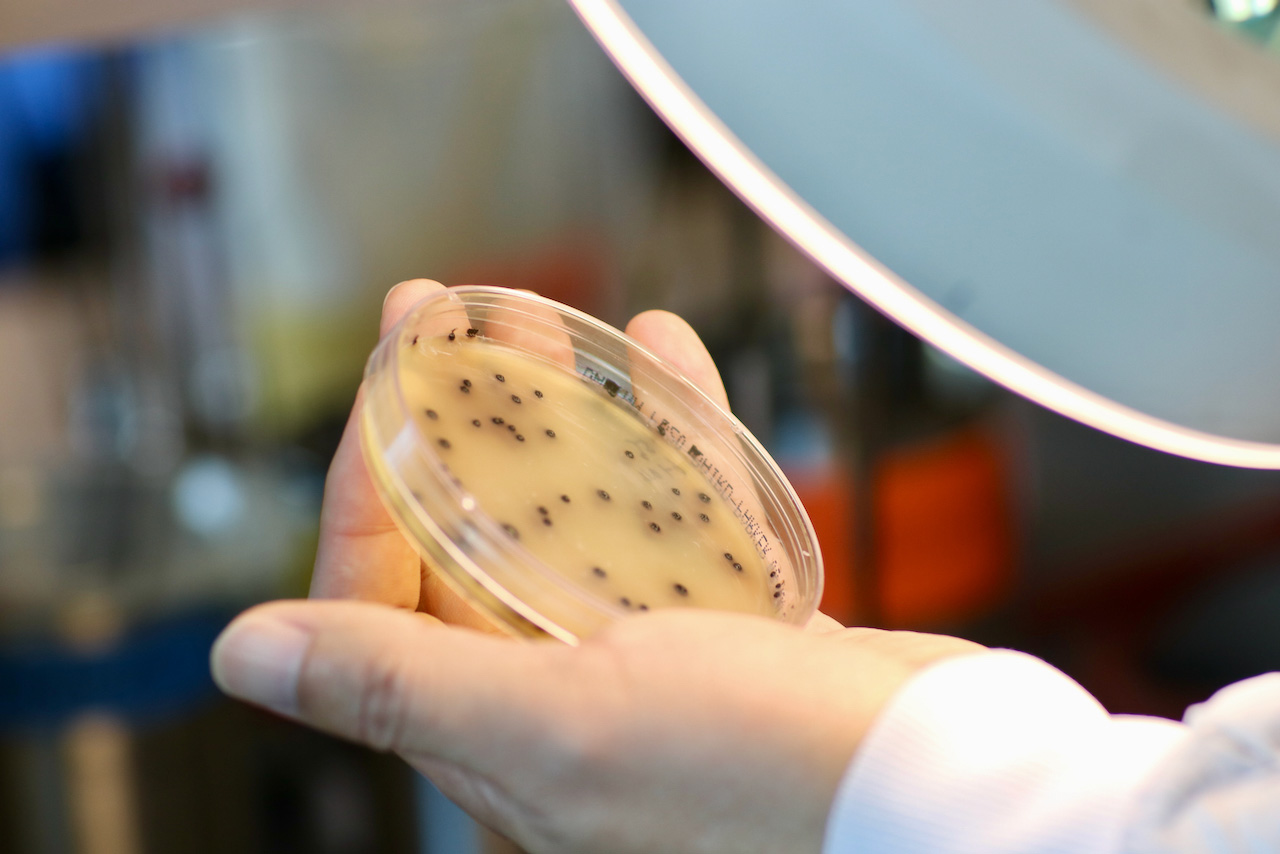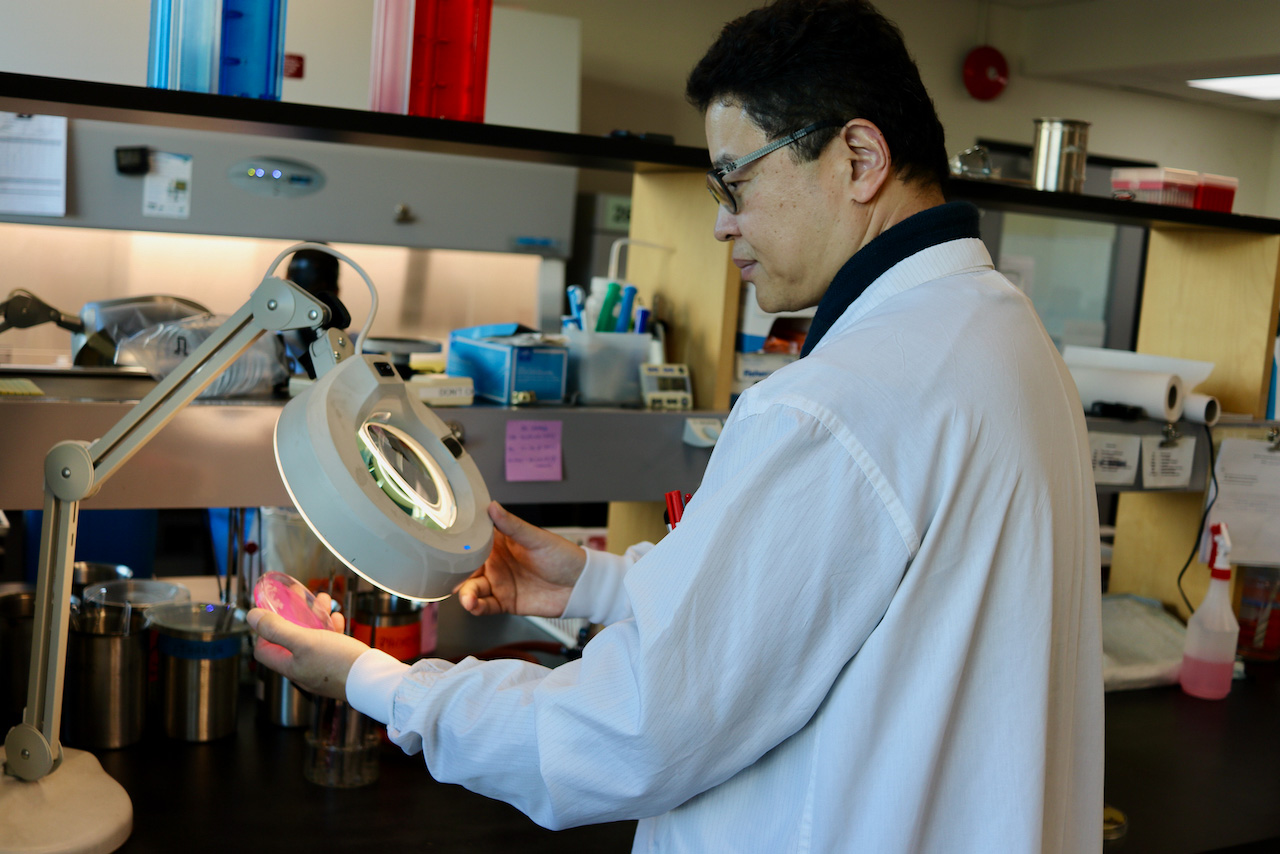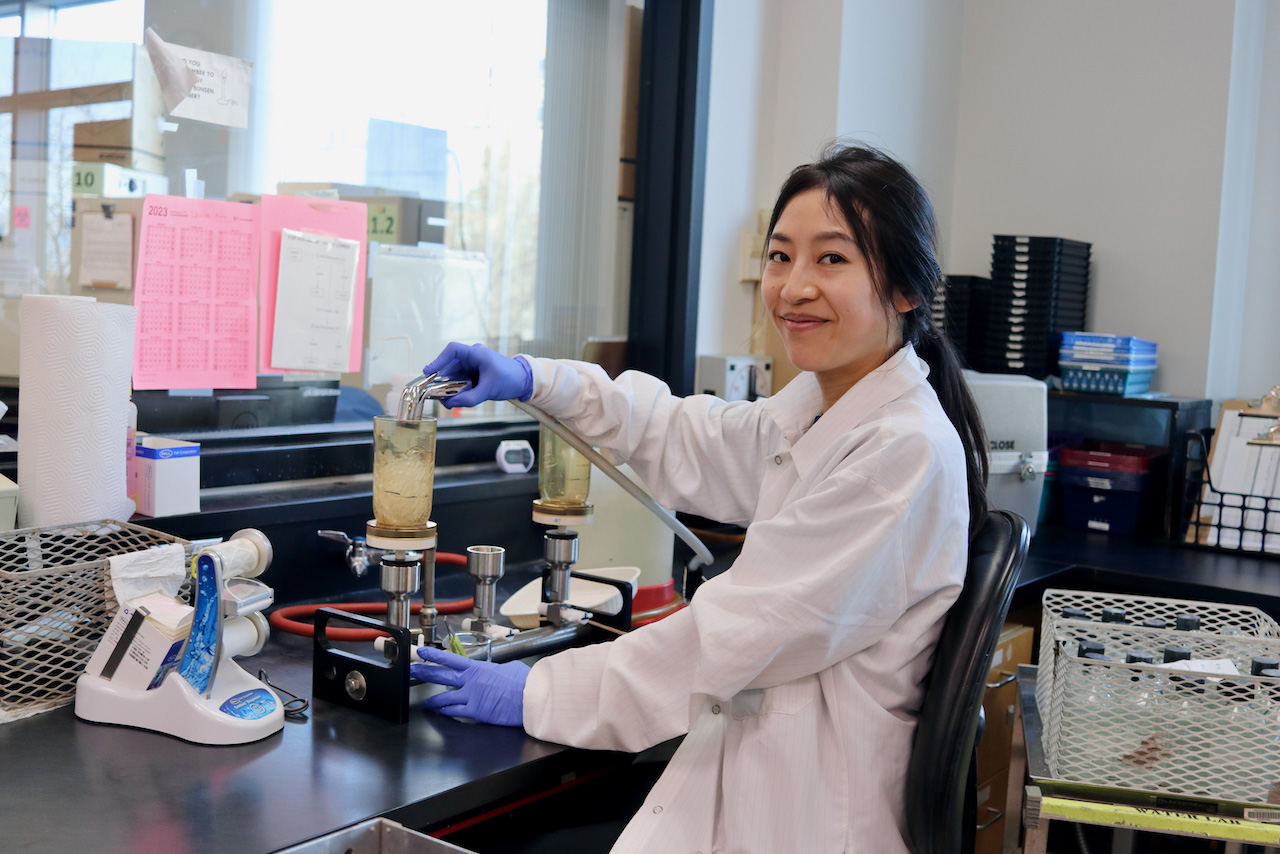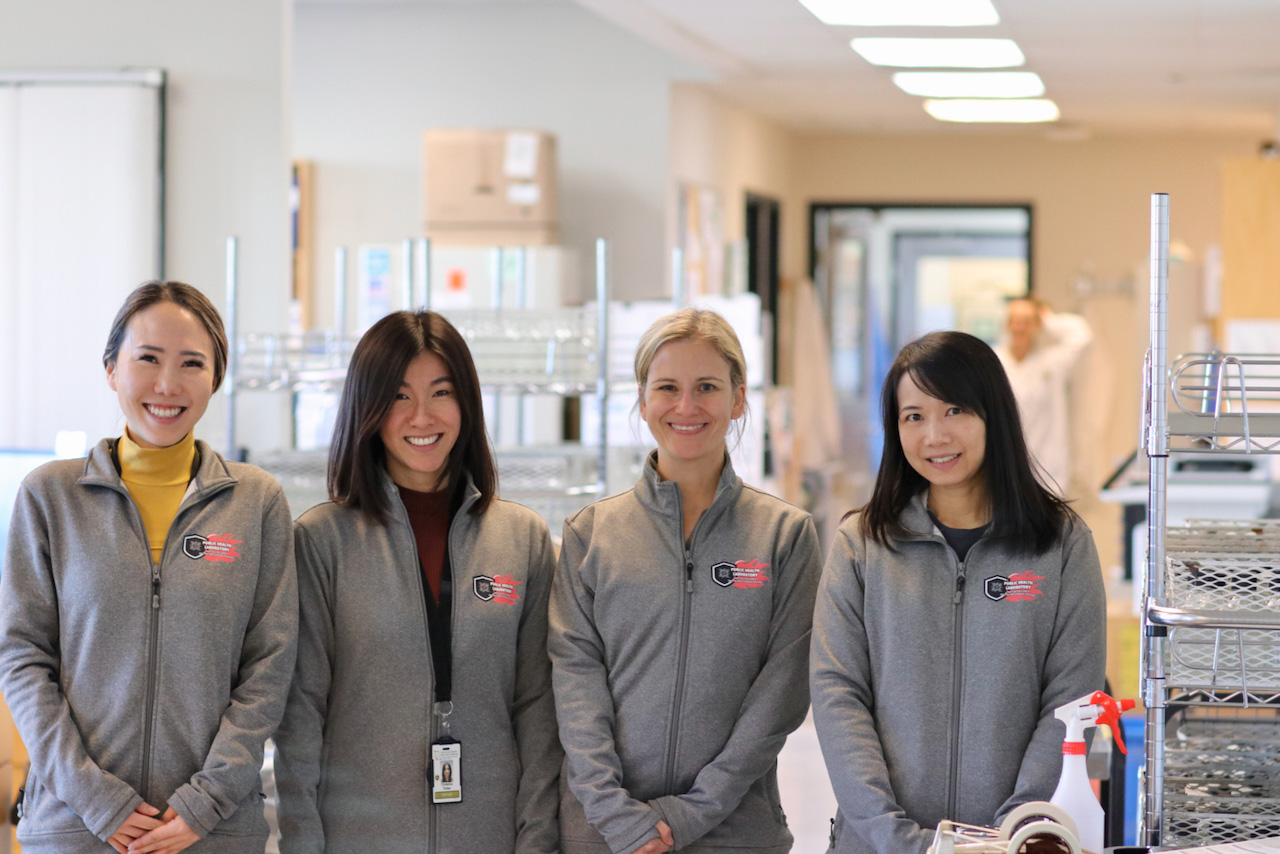Wastewater Surveillance Research
Wastewater surveillance project pivots from pandemic challenges to toxic drug poisoning crisis
Dr Natalie Prystajecky, program head for the Environmental Microbiology program at the BC Centre for Disease Control (BCCDC) Public Health Laboratory, had been studying viruses in Metro Vancouver’s wastewater when her team received funding from the Foundation to test wastewater for SARS-CoV-2, providing weekly information on the spread of COVID-19 in BC.
Now, thanks to collaborative efforts between research teams and harm reduction experts in public health, a new approach is taking shape to harness this testing for use in identifying unregulated substances.
The Foundation has committed to supporting this pilot research, which will determine if testing wastewater for trends in unregulated drug use, like fentanyl, can help to provide a crucial new tool to combat the toxic drug poisoning crisis. With anonymous, population-level data, the testing will be used to arm our decision-makers with invaluable information that will help to create healthier public policies, ensure programs and policies keep pace with the changing needs and landscape of this emergency, and provide evidence to help understand the potential for new community-based safer supply models.
Your support for this project will help the team to continue this crucial and inspiring work, making it possible to have near-real-time access to trends and patterns. For example, imagine the lives that could be saved if we might be able to alert communities about urgent issues and possible interventions before it’s too late.
Continue reading about this innovative project below.
New possibilities in safeguarding public health
Leveraging the success of this monitoring tool to protect British Columbians from infectious diseases, the team subsequently expanded wastewater testing for other respiratory illnesses and foodborne pathogens. Now, thanks to collaborative efforts between research teams and harm reduction experts in public health, an innovative new approach is taking shape to harness this testing for use in identifying trends in the circulation of a wide range of illicit, unregulated substances, including fentanyl.
Alongside Public Health Physician Dr Alexis Crabtree of the BCCDC Harm Reduction and Substance Use Services, Dr Prystajecky is leading a 12-month pilot project to monitor wastewater for unregulated drugs. Happening within all five regional health authorities in BC, in collaboration with communities, the testing uses the same residual wastewater that is collected for SARS-CoV-2 testing.
The team will share this population-level data with partners alongside other data that is used for monitoring substance use, to determine if the information can be used to enhance our response to the toxic drug poisoning crisis. This could have the potential to save countless lives from a toxic drug poisoning crisis that has claimed an average of 6.9 deaths each day in BC since being declared a public health emergency in April 2016.
Enabling healthy public policy for people who use substances, benefitting them and their communities
Studies have found that overdose deaths disproportionately impact people who face inequities caused by systemic barriers and the social determinants of health, such as stigma and discrimination. The pilot project may provide timely knowledge of trends in the use of unregulated drugs which can help influence healthy public policy and ensure programs and policies keep pace with the changing needs and landscape of this emergency. An emergency that has claimed more than 13,700 lives, each one preventable.
Testing wastewater offers several advantages that will supplement other forms of data gathered on unregulated drugs. For one, the data is anonymous and obtained in a completely noninvasive way.
As well, the data is free of biases potentially found in other data gathering methods, because the population-wide scope covers all segments of the population ensuring it is broadly representative rather than focusing only on certain groups, like those accessing treatment for opioid use disorder.
“This project supports an equity-driven approach to collecting and using sensitive data, which ultimately can influence critical healthy policies to advance life-saving solutions. And the scope of this population-level data is not available elsewhere, making it a real game changer for our partners across the province.” -Dr Prystajecky and Dr Crabtree
Having access to near real-time data at a localized level, when combined with other unregulated drug surveillance methods, may be an incredible benefit when communities are in need of urgent interventions to prevent deaths and save lives.
Investing in the health of BC thanks to you
The Foundation was able to invest in adapting the technology originally funded during the pandemic thanks to donor support for our public health researchers and their innovative projects. This is a great example of proactive public health and showcases how our Foundation is unique, as we were able to pivot quickly to support crucial work that was so urgently needed at the time. Now, we have the opportunity to leverage this work to advance this important, and urgent, project, and we need your support to help us respond proactively again, before more lives are lost.
This work also has the potential to be an important opportunity to move the dial on safer supply programming, providing stronger data for government decision-makers on the impacts of the current prescribed safer supply policy, as well as evidence to help understand the potential need for new community-based models. The 2022 and 2023 BC Coroner’s Death Review Reports call for urgent, lower-barrier, and more equitable models and this pilot project will contribute to the evidence base required for immediate action.
Many British Columbians have loved ones who use substances or may use substances themselves. Wastewater monitoring for unregulated substances could lead to more equitable public policy that improves the health of British Columbians, especially those who are disproportionately represented in reported substance use statistics.
Together with our supporters, who are driving change by taking action on the toxic drug poisoning crisis, we can reduce harm, reduce risk, and save lives before more lives are lost.
Through a generous lead gift from committed supporter Julie Glover, we have achieved 30% of our goal. Will you join Julie in making a gift?
Thank you for standing behind this lifesaving work.
